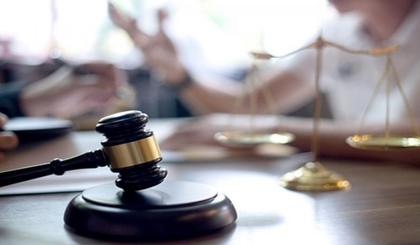Maha govt to challenge HC’s acquittal of all 2006 Mumbai blast accused
By IANS | Updated: July 21, 2025 23:14 IST2025-07-21T23:09:51+5:302025-07-21T23:14:23+5:30
Mumbai, July 21 The Maharashtra government on Monday announced it will challenge the Bombay High Court’s acquittal of ...

Maha govt to challenge HC’s acquittal of all 2006 Mumbai blast accused
Mumbai, July 21 The Maharashtra government on Monday announced it will challenge the Bombay High Court’s acquittal of 12 accused in the 2006 Mumbai train blasts case.
Chief Minister Devendra Fadnavis termed the court's verdict as "shocking", saying that the state government will move the Supreme Court against it.
"I will go through the entire order. I have discussed it with the lawyers, and the high court verdict will be challenged in the Supreme Court," Fadnavis told reporters.
Earlier, the Bombay High Court on Monday in its major ruling acquitted 12 accused in the July 11, 2006 Mumbai blast case.
The verdict was given by a bench of Justice Anil Kilor and Justice S Chandak.
The High Court’s order is a major blow to the investigation agencies. With this decision, the sentences imposed by the special court earlier have been cancelled.
There were in all 13 accused, of whom one was already acquitted by the special court. The high court has ordered the release of 12, of whom five were on death sentence and seven others on life imprisonment, to be released from jail immediately.
The serial bomb blasts in a local train in Mumbai killed 187 people and injured more than 800. Five explosions took place in local trains in Mumbai in 11 minutes between Churchgate and Borivali stations.
The explosives used in the 2006 Mumbai train bomb blasts were a mixture of RDX and Ammonium Nitrate. The bombs were packed into seven pressure cookers and put in bags. Forensic analysis confirmed the presence of these explosives in the debris.
The serial bomb blasts were carried out by Islamic militants backed by Pakistan. During the attack, seven blasts ripped through trains in the evening rush hour. The Anti-Terrorism Squad (ATS) had filed a chargesheet in November 2006 under the Maharashtra Control of Organised Crime Act (MCOCA) and the Unlawful Activities (Prevention) Act (UAPA).
The Prosecution had argued that the attack was planned by Pakistan's intelligence agency ISI, and carried out by operatives of Pakistan-based militant group Lashkar-e-Toiba with help from the Students' Islamic Movement of India, a banned Indian group.
However, the police and investigation agencies were unable to present evidence properly in the court, leading to the acquittal of 12 accused after 19 years languishing in jail.
In 2015, a special court convicted 12 accused in the case and sentenced five accused to death and seven others to life imprisonment.
Faisal Sheikh, Asif Khan, Kamal Ansari, Ehtesham Siddiqui, and Naveed Khan were sentenced to death. The accused had challenged this sentence in the High Court. The accused in the case had alleged that the police had beaten them up and recorded their statements.
Due to this, the Bombay High Court had raised questions on the investigation by the Mumbai Police. The state government had filed the petition in the High Court to confirm the death sentence pronounced by the special court.
In Monday’s hearing, 12 accused, from Yerwada, Nashik, Amravati and Nagpur jails, appeared through video conference. After the verdict, the accused expressed happiness. The Bombay High Court overturned this verdict and acquitted 11 accused.
The bench led by Justice Kilor held, “It is unsafe to reach the satisfaction that the appellant accused has committed the offence for which they have been convicted and sentenced. Therefore, the accused judgment and order of conviction and sentence are liable to be quashed and set aside.”
Disclaimer: This post has been auto-published from an agency feed without any modifications to the text and has not been reviewed by an editor
Open in app